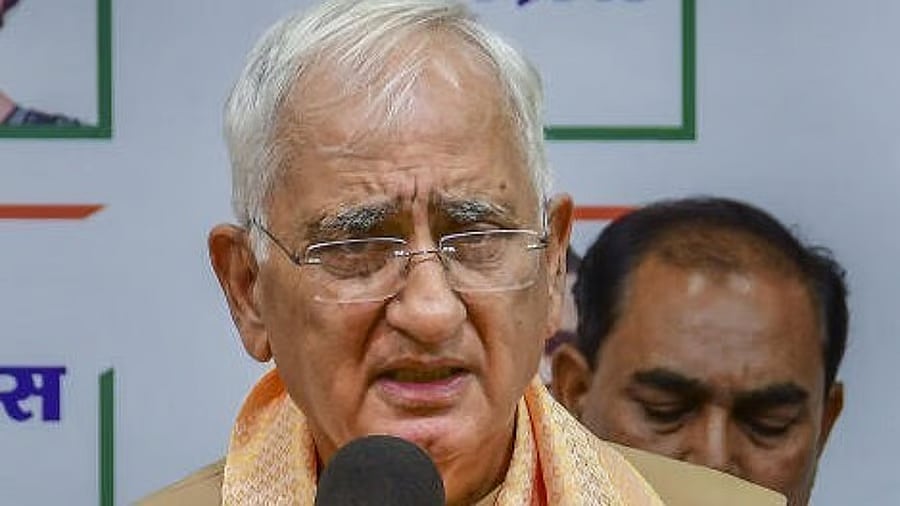
Senior Congress leader Salman Khurshid
Credit: PTI File Photo
New Delhi: With his new book India’s Tryst With The World, veteran Congress leader Salman Khurshid makes a case for how our diplomacy is "saffronised". In a conversation with DH’s Amrita Madhukalya, he speaks about what needs to change on the foreign affairs front. Edited excerpts:
The book has one of the last pieces by former prime minister Dr Manmohan Singh. It says India must be seen as a “liberal democracy” and that our pluralism held an appeal among democracies such as the US, countries in Europe, over China. Do you think we are doing that?
Those of us who are in public life in India are conscious that the ground rules are changing. Political circumstances have shifted the goalposts. There is no clear stated policy statement; that reneges on everything we stood for in many decades. There is clearly an alternative view emerging – to what extent will what happens in India be dragged on what we saw in the liberal world of yesteryears is the big question.
You have spoken about “personalised diplomacy” that has led to several awards for the Prime Minister over diplomatic gains. Can you elaborate?
If I wanted to take an extreme example – our relationship with the USA. What was it at the peak of Dr Manmohan Singh’s tenure when he pulled off the Nuclear Deal and what that predicted as the path ahead. And today, what we see is a clear articulation of a very deep friendship between our PM and the US president but we see no benefits for India. We have nothing to show for strategically, especially in Operation Sindoor. There are huge problems.
Both you and the co-editor Salil Shetty speak of the saffronisation of the diplomatic core of India. How has that affected us?
There is one word for it – hypocrisy. Look at our position with the Arab world. One sour point was when a spokesperson of the BJP said something about the Holy Prophet of Islam. The government kept the person away from public presence. But do they think differently about Islam when abroad? You can’t simply stop at the border and think it will not go beyond. It will. It might not be apparent when you are talking commerce, but when we are dealing with an issue like Palestine, it becomes complicated.
Do you feel that, unlike the prime minister’s carefully crafted agendas when he travels abroad, Congress leader Rahul Gandhi is seen in universities, but not in strategic meetings.
He (Gandhi) has a preference; he likes to communicate with young people, scholars and experts etc. The problem is that every time he spends a few days abroad, someone from the BJP says that he’s on a holiday. No, he’s working. When you are living in a globalised world, your ability to communicate, whether you are a Leader of Opposition or ruling party, is very important.
The neighbourhood, including Nepal, Bhutan, Bangladesh had shared good relations with India traditionally. Now, things are a little strained. What has changed?
Our relationships with our neighbours cannot be based on mathematical reciprocity, they are much smaller, they have limited capacity. The important thing to do if we want a higher profile in the world is to have a higher profile in the neighbourhood. The new generations in these countries, who have never been spoken to in these countries, wanted a wholesale change and have brought it. We, traditional leaders, must not rest on our past laurels; we must start a new conversation.